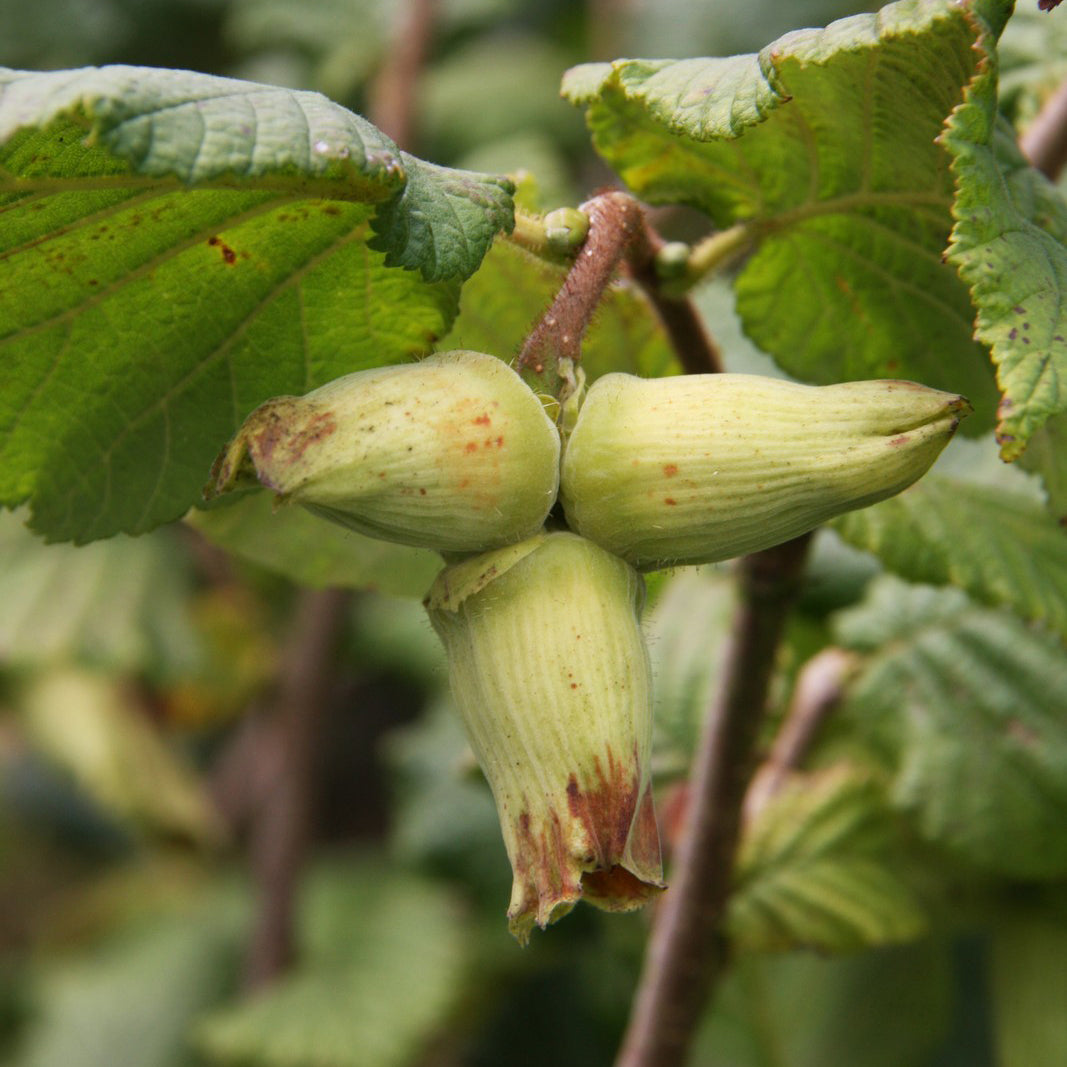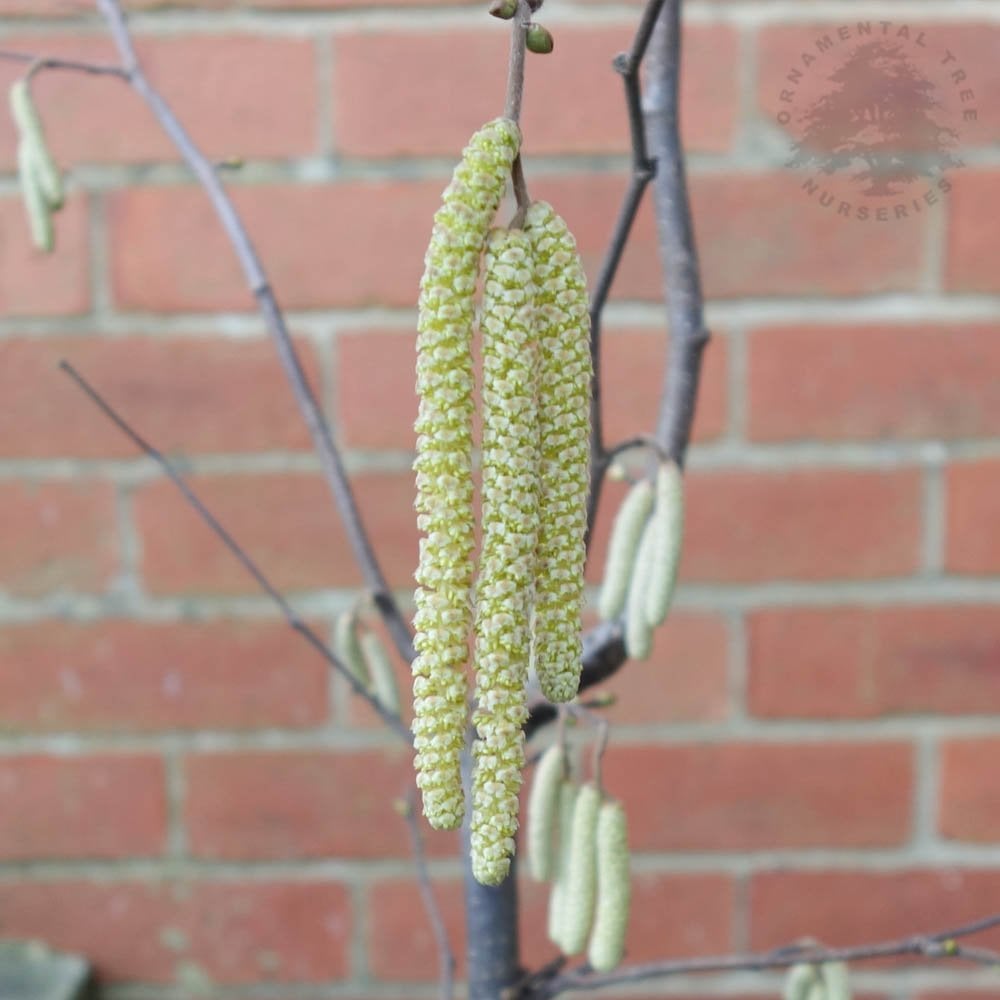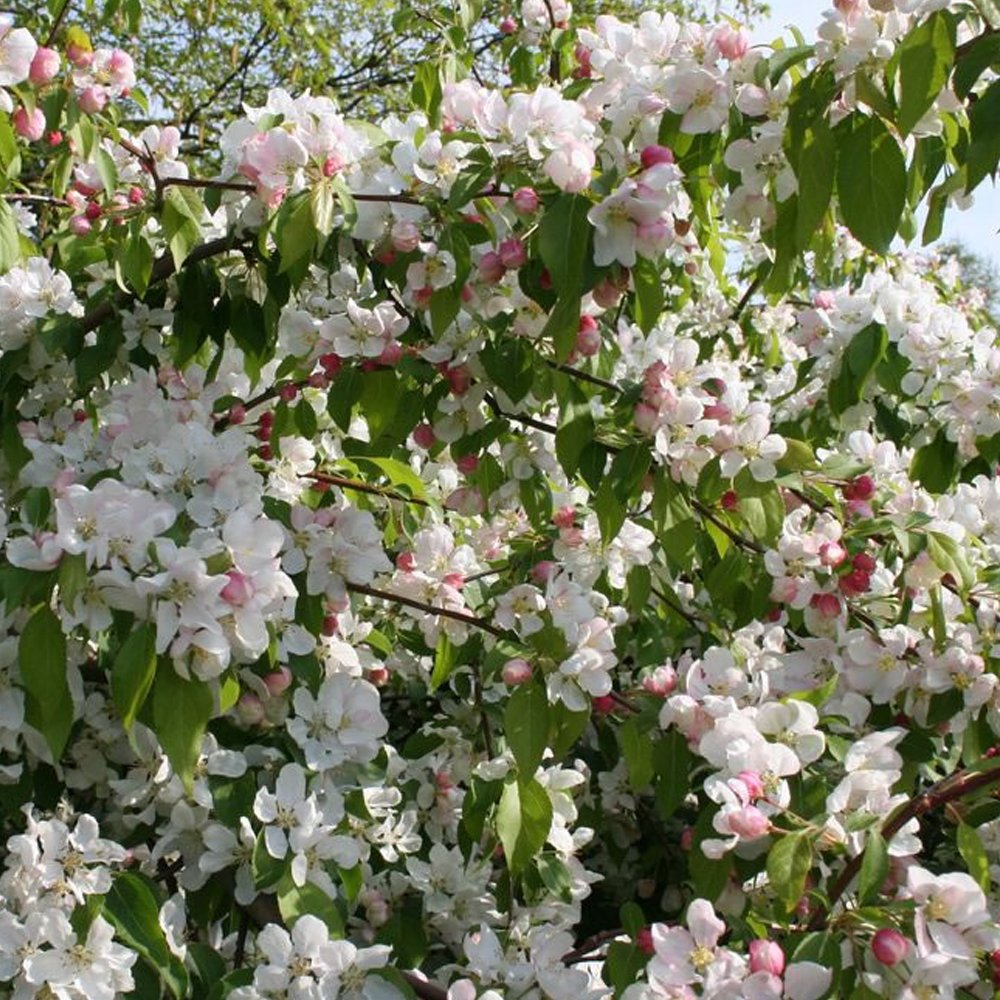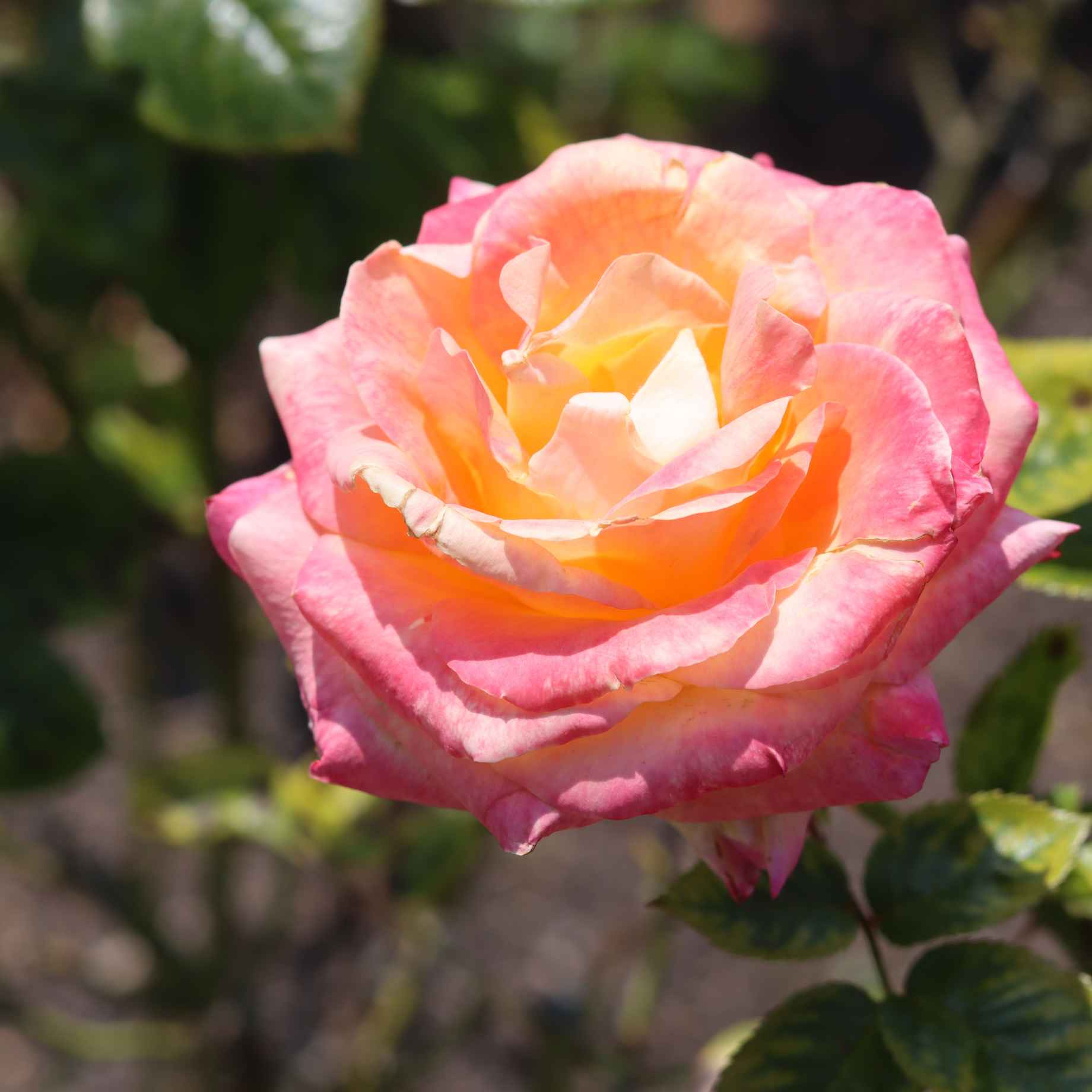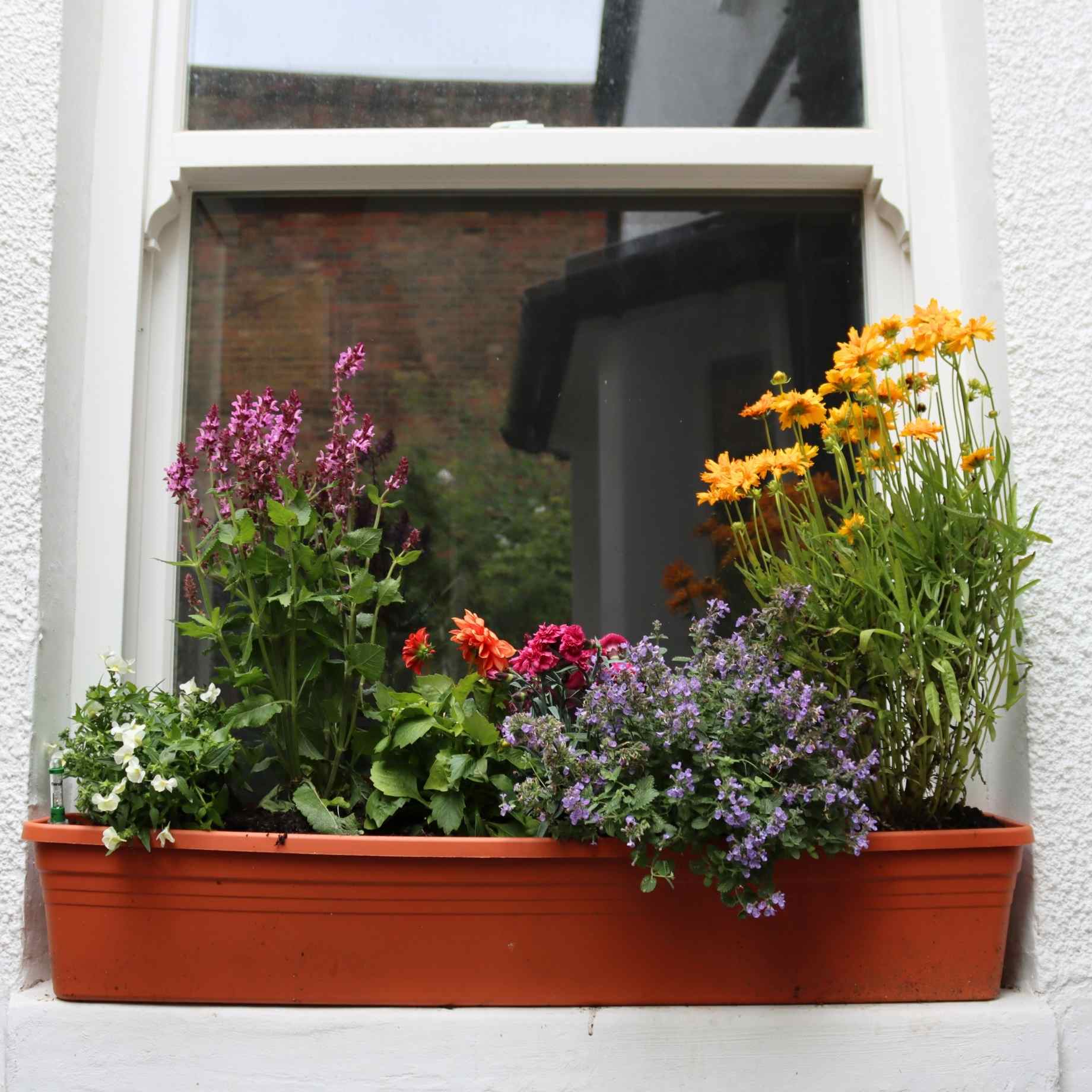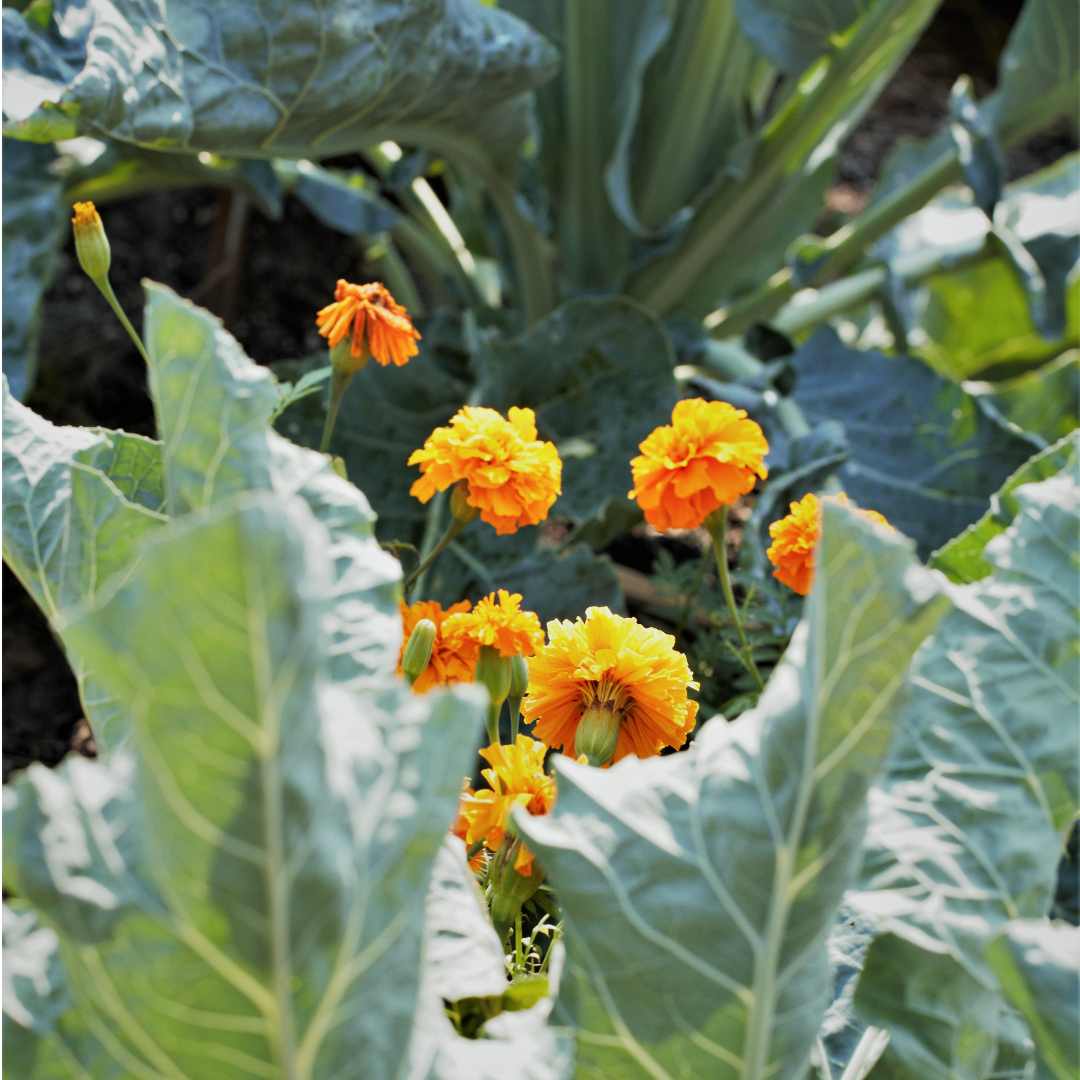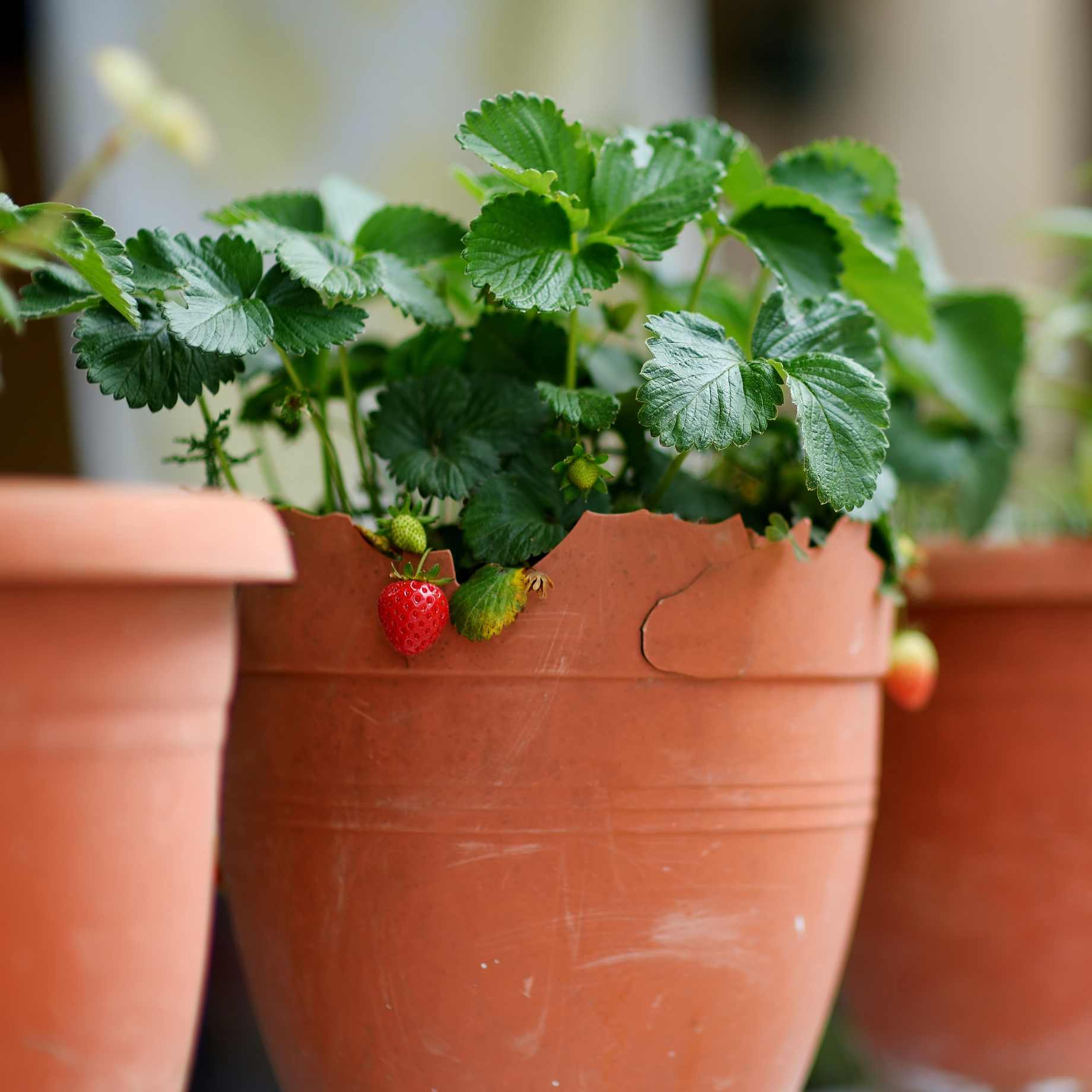Key features
Final size4 x 4 metres in 20 years
FruitNuts can be eaten, stored or cooked
Pollination groupPartially self fertile
PositionFull sun to part shade
SoilPrefers well-draining soil
Description
Hazel ‘Webb’s Prize Cob’ produces large, flavoursome nuts that are suited to eating and cooking. In late winter to early spring, yellow/brown catkins hang from the branches of this well sized shrub or tree. They are followed by broad, green leaves and in early autumn, edible nuts. When stored correctly, the nuts can be kept for a year.
Partially self-fertile, Hazel ‘Webb’s Prize Cob’ can produce nuts by itself but will crop far better with another variety pollinating it. Grow in a sheltered position with full sun to partial shade.
AKA Corylus avellana ‘Webb’s Prize Cob’
Planting Steps
1Preparation
- Pot-grown plants can be planted at any time of year, whereas bare roots need to be planted between November and March.
- Clear weeds and grass within a metre of the planting hole.
- Dig a hole as deep as the root mass and twice as wide.
- To help your plant establish more effectively, sprinkle Rootgrow in the hole.
2Planting
- Gently loosen the roots and place into the planting hole.
- Ensure the top of the plant’s compost is flush with the level of the surrounding soil and the graft union or collar of the tree is above ground level.
- Mix 50% of the original soil with 50% compost.
- Fill in the hole, firming the soil gently.
3Last Steps
- Water generously around the base of the plant.
- If you are planting either a single stem tree or mature standard tree, we recommend adding a staking kit and rabbit guard.
Aftercare Advice
Trees and shrubs require a good watering regime for a couple of years whilst they establish. Water well and regularly through spring and summer, increasing in hot or dry weather. If planting in autumn, you may only need to water a little. It is advisable to keep the area free of competing weeds and grass during this period.
For more detailed advice and video guides, please visit our Help & Advice section.

